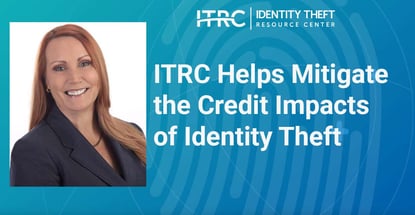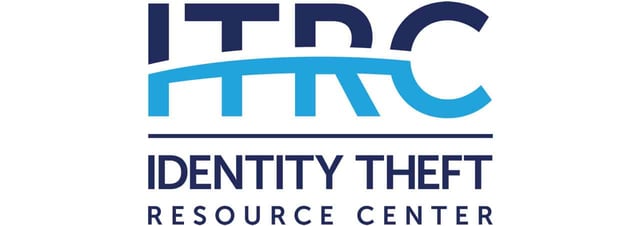
Our experts and industry insiders blog the latest news, studies and current events from inside the credit card industry. Our articles follow strict editorial guidelines.
In a Nutshell: As identity fraudsters become more sophisticated in their approaches, people will need to improve preventative measures and be more aware of security risks. For over 20 years, The Identity Theft Resource Center (ITRC) has been a leading authority on what to watch out for and how consumers can better protect themselves from identity theft. The Center provides risk minimization assistance and Help Center resources to those in need, as well as community presentations. For those who suspect they are victims of identity theft, the Center’s best recommendation is to freeze their credit.
Identity theft has been a persistent problem in society, and one that continuously evolves as we develop newer technologies and methods of sharing personal information.
The threat is just as serious as ever, and identity theft is still deeply affecting the lives of victims. With the advent of computers and social anonymity, fraudsters have become more skilled — going from common email scams to fabricating and stealing entire social media identities of their victims.
To combat this growing problem, people will have to become more informed about the risks of sharing personal information online with unverified actors. It is a mission that The Identity Theft Resource Center (ITRC) has actively confronted.

Founded in 1999, The Identity Theft Resource Center is a 501(c)(3) nonprofit that is dedicated to providing free services to victims of identity theft. The nonprofit was created on the premise that identity theft victims shouldn’t be left to fend for themselves.
Eva Velasquez, President and CEO of ITRC, said that, although there are paid services that people can use, providing the public with free resources is essential. The Center is national in scope and also assists US citizens living abroad.
The Identity Theft Resource Center produces a number of research publications every year, and Velasquez said that the organization also tries to educate thought leaders, decision-makers and even policy and lawmakers to help them understand not only the scope of these types of crimes, but the true impact as well.
“There are still folks that just don’t understand how devastating, particularly, a complex identity theft case can be,” said Velasquez. “We want to make sure they realize this can be a life altering event for some people, and it can have long term effects.”
She said a lot of people can’t see that relationship and connecting the dots is a big part of what the Center’s research tries to achieve.
Restoring Credit From the Impacts of Identity Theft
One of the biggest problems that results when your social media identity is stolen is that con artists may not only gain access to your financial accounts, but can also create new accounts under your identity.
Velasquez said that it is unfortunately not up to the financial services industry to clean up that type of mess and that, typically, it is the victims who have to spearhead their recovery process.
To make matters worse, having these fake accounts opened under your name can lead to a serious impact on your credit score and may sometimes raise the interest rates on your current lines of credit.
“You’ve done nothing wrong, and suddenly you’re paying out of pocket a higher interest rate on a balance that you have on a legitimate account,” said Velasquez.
These actions can affect innocent people in so many ways, whether they are trying to buy a home, a car or a student loan.
Velasquez said it is especially heartbreaking to see this happen to students who are just starting to apply for student loans and then discover they don’t qualify because fake accounts are driving down their credit scores.

It can take students a semester, a year, or even longer to clean up that kind of financial mess. “And it now puts them behind their peers, permanently. We’ve talked to young people and their parents trying to clean this up. Their education dreams are on hold during that time, and this is not through any action of their own,” said Velasquez. “They’re victims of a crime.”
According to The Center’s research, social media account takeovers have been running rampant and can have a significant impact on businesses and even entire economies.
Many of these accounts are used for advertising and help small business owners and solopreneurs generate revenue. A snap survey conducted by the nonprofit determined that 27% of respondents said they had lost revenue because of account takeovers.
Account takeovers affect the overall economy when victims aren’t able to generate revenue, spend money, or take out loans. Some victims are forced to ask for money from family, friends, community organizations and others.
“You have to realize that is money not being spent in our economy,” said Velasquez. “It’s not just the individual and their family—it’s their community and then it’s all communities, and then the nation as a whole.”
ITRC’s Resources For Staying Safe Online
The nonprofit’s Help Center offers different resources to help people learn about identity theft, including informative posts, podcasts, press releases, training events, notification tools and webinars.
ITRC’s main webpage promotes the principles of prevention, recovery, and protection.
Some useful tools the nonprofit provides include Frozen Pii, which helps potential ID theft victims freeze their credit. Visitors to the site can also use ITRC’s comprehensive database of information about publicly reported data breaches called notified.
Aside from its online Help Center, ITRC conducts community presentations through its partners in law enforcement, community organizations and the Federal Trade Commission. Much of the nonprofit’s presentation material can be viewed on its YouTube channel.
Velasquez advised that if any members of a community would like to have ITRC host a presentation in their area, they can just contact their local law enforcement or community organizations and make a request, as the service itself is free.
“There are so many different ways that people can get this information,” said Velasquez. Everything on the website is self-directed and there’s no need to schedule online sessions, she said.
Proactive Tips On Preventing Identity Theft
The Identity Theft Resource Center suggested there are three main methods to protect against online identity theft. They include freezing one’s credit, using longer passwords that are at least 12 characters long or more, and enabling multifactor authentication on all accounts.
Doing so will help create the basis for essential security measures. Velasquez said that it is important for people to practice cyber or identity hygiene, which includes creating layers of cybersecurity to protect one’s identity. These layers of cybersecurity add up, just as small steps in physical hygiene combine to take care of your body.
Velasquez also said that the COVID-19 pandemic had a major effect on how people dealt with online security issues. When employees began working from home, many were not versed in working remotely at all.
This created a significant spike in identity breaches. “Phishing emails just went completely off the chain,” said Velasquez. “It was already terrible. But it increased exponentially [during the pandemic].”
The big push that The Identity Theft Resource Center made was to tell employers to educate their employees and provide a pathway for them to understand how operations work in a remote office setting.
Velasquez said she believes those efforts have been successful because the nonprofit is getting fewer calls from employers than it did before. And although the phishing emails still occur on occasion, there are far fewer being reported than during the peak of the pandemic.
Another problem workers face are feelings of shame or embarrassment when they don’t know how to deal with cybersecurity issues. In her closing remarks, Velasquez said that there is no shame in needing expert help in this area.
“If you broke your leg, you wouldn’t shame yourself that you couldn’t put the splint on and set your own bone,” said Velasquez. “You go see a doctor. The professional would help you give you your aftercare instructions, you would implement them and follow them. Really the same mindset.”
“I just want to encourage people to reach out if they need help, get some free resources, and not feel that shame or embarrassment,” she said.


![How the Chase 5/24 Rule Works & Which Credit Cards It Affects ([updated_month_year]) How the Chase 5/24 Rule Works & Which Credit Cards It Affects ([updated_month_year])](https://www.cardrates.com/images/uploads/2018/03/5242.png?width=158&height=120&fit=crop)


![5 Best Online Personal Loans for Bad Credit ([updated_month_year]) 5 Best Online Personal Loans for Bad Credit ([updated_month_year])](https://www.cardrates.com/images/uploads/2018/06/loan.png?width=158&height=120&fit=crop)
![11 Easiest Online Loans ([updated_month_year]) 11 Easiest Online Loans ([updated_month_year])](https://www.cardrates.com/images/uploads/2020/07/shutterstock_443859163.jpg?width=158&height=120&fit=crop)
![How to Use a Prepaid Card Online ([updated_month_year]) How to Use a Prepaid Card Online ([updated_month_year])](https://www.cardrates.com/images/uploads/2022/01/How-to-Use-a-Prepaid-Card-Online.jpg?width=158&height=120&fit=crop)
![9 Online Installment Loans With Instant Approval ([updated_month_year]) 9 Online Installment Loans With Instant Approval ([updated_month_year])](https://www.cardrates.com/images/uploads/2023/06/Online-Installment-Loans-With-Instant-Approval.jpg?width=158&height=120&fit=crop)
![7 Car Loans Easy to Get Online ([updated_month_year]) 7 Car Loans Easy to Get Online ([updated_month_year])](https://www.cardrates.com/images/uploads/2023/07/Car-Loans-Easy-to-Get.jpg?width=158&height=120&fit=crop)